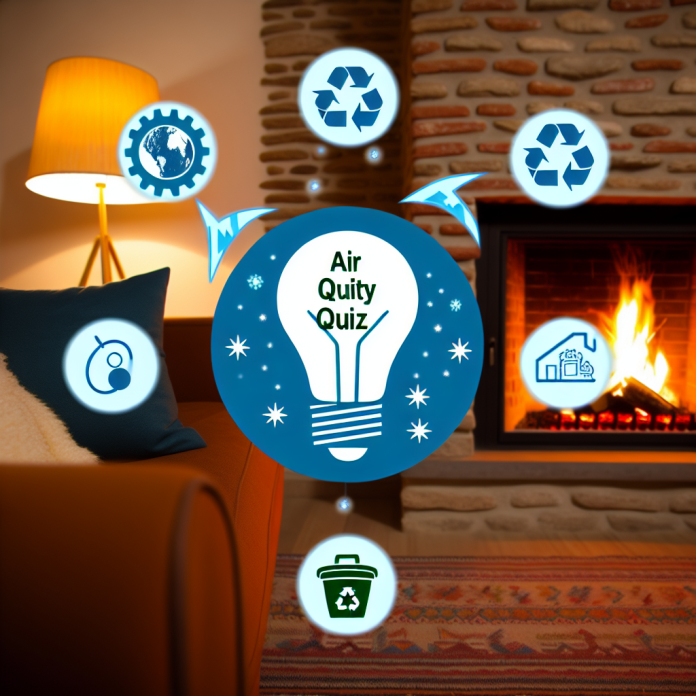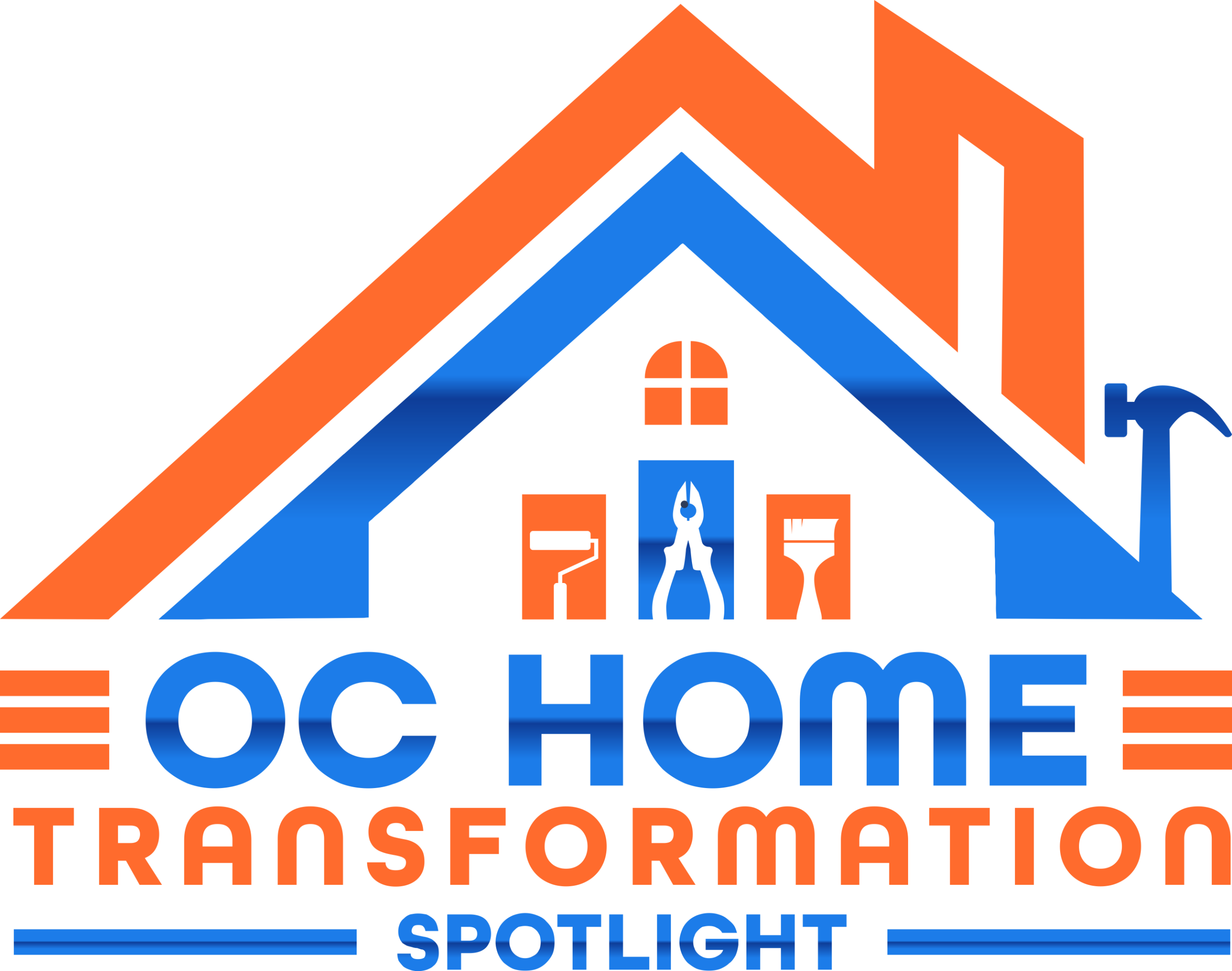Whole home air management is a crucial aspect of maintaining a comfortable living environment, significantly influencing both air quality and energy efficiency. By adopting a whole home approach, homeowners can effectively address indoor air management, ensuring proper ventilation, insulation, and HVAC maintenance. This strategy not only optimizes thermal comfort but also helps in reducing energy bills, making it a wise investment. Implementing energy efficiency tips, such as regular HVAC inspections and improving home insulation, can lead to substantial savings. Understanding the factors that contribute to whole home air quality is essential for creating a healthy, efficient living space.
When discussing comprehensive air management for residences, terms such as indoor climate control and holistic air quality come into play. By focusing on the entire house rather than individual systems, homeowners can enhance their living conditions significantly. Factors like insulation quality, ductwork integrity, and overall HVAC performance contribute to a home’s energy efficiency and comfort levels. This all-encompassing approach ensures that every aspect of air circulation and maintenance is optimized, benefiting both health and savings. Embracing a full-spectrum strategy facilitates improved indoor air management that can relieve issues many homeowners often overlook.
Understanding the Whole Home Air Concept for Orange County Homeowners
The “whole home air” concept signifies an integrated approach to indoor air management that extends beyond traditional HVAC systems. By understanding the way that air flows through a home, homeowners can identify inefficiencies that may be compromising their comfort and energy efficiency. This approach recognizes that factors such as building insulation, ductwork, and even external air quality play critical roles in maintaining a balanced and healthy indoor environment.
Implementing a whole home air strategy involves evaluating various elements, including how well your insulation retains conditioned air and prevents drafts. This doesn’t just lead to higher energy efficiency but also improves the overall air quality in your living space. By utilizing the services of professionals like Owens Corning AirCare® experts, homeowners can thoroughly assess their indoor air management strategies for optimal performance.
Importance of Orange County HVAC Maintenance for Indoor Air Quality
Regular HVAC maintenance is crucial for enhancing indoor air quality and energy efficiency. An improperly maintained system can lead to several issues such as reduced airflow and increased dust, which can trigger allergies and impact the overall comfort of the home. By conducting routine checks and necessary repairs, homeowners can ensure their HVAC systems function effectively, promoting better air quality and reducing energy consumption.
In addition to regular maintenance, changing the furnace filter is a simple yet impactful way to maintain good air quality. A dirty filter can block airflow and cause the HVAC system to work harder, leading to increased energy costs. Therefore, committing to a maintenance schedule not only protects your equipment but also supports the health of your indoor environment.
The Role of Home Insulation in Energy Efficiency
Home insulation plays a vital role in maintaining energy efficiency and comfort by minimizing thermal transfer between the indoor and outdoor environments. Proper insulation retains heat during winter and keeps homes cooler in summer, thereby reducing the burden on heating and cooling systems. As temperatures rise or fall, well-insulated attics and walls prevent conditioned air from escaping, leading to lower energy bills and improved indoor satisfaction.
However, it’s essential to assess insulation levels regularly, as inadequate insulation can lead to significant energy losses. Engaging an HVAC technician to evaluate the insulation in your attic or walls can identify areas that need attention, ensuring your home remains energy-efficient while providing a comfortable living environment.
Indoor Air Management Strategies for Orange County Homeowners
Effective indoor air management strategies involve not only maintaining HVAC systems but also optimizing air circulation throughout the home. Strategies such as using air purifiers, maintaining adequate humidity levels, and ensuring proper ventilation can significantly enhance air quality. These practices help remove pollutants and allergens, creating a safer and more comfortable indoor environment.
Incorporating energy-efficient appliances and materials that contribute to better indoor air quality is another essential strategy. The use of low VOC (Volatile Organic Compounds) paints, adhesives, and cleaning products reduce harmful emissions, making the air safer to breathe. By embracing comprehensive indoor air management techniques, homeowners can ensure a healthier and more energy-efficient home.
The Importance of Attic Inspection in Home Efficiency
Attic inspections are a critical component of achieving whole home air efficiency. Technicians often discover insulation gaps, ductwork issues, or seal failures that can lead to significant energy loss and compromised air quality. An annual inspection ensures all aspects of the attic are evaluated, recommending necessary improvements to enhance energy savings and thermal comfort throughout the home.
Additionally, addressing moisture issues in the attic can prevent mold growth and related health problems. An HVAC technician can pinpoint sources of humidity and recommend solutions that will improve both insulation effectiveness and indoor air quality. Ensuring that the attic space is in optimal condition not only boosts energy efficiency but also protects the overall integrity of the home.
Identifying Ductwork Issues for Better Air Quality
Ductwork plays a significant role in distributing heated or cooled air throughout the home. However, problems such as leaks or obstructions can lead to inefficient airflow and poor indoor air quality. Homeowners should be aware of signs such as increased dust levels or strange smells, which may indicate that ductwork is compromised and needs inspection or repair.
Regular duct inspections and maintenance not only enhance energy efficiency but also improve the overall quality of indoor air. Ensuring that air travels freely through well-maintained ducts eliminates the chances of contaminated air infiltrating the living spaces. This proactive approach to indoor air management ensures a more comfortable and healthier home environment.
The Connection Between Building Codes and Home Efficiency
Building codes play a vital role in establishing minimum standards for energy efficiency in homes. However, as technologies and materials advance, even relatively new homes may fall short of the best practices for energy conservation and indoor air quality. Homeowners should consider these evolving standards when assessing their properties, as this can lead to further improvements in efficiency and comfort.
Understanding that building codes are just a baseline can inspire homeowners to look for additional ways to improve their homes. Assessing insulation, sealing drafts, and upgrading HVAC systems beyond code can significantly enhance energy efficiency and indoor air management, leading to long-term comfort and savings.
Enhancing Energy Efficiency with Smart Home Technologies
Smart home technologies offer innovative solutions to enhance energy efficiency and indoor air quality. Thermostats that learn homeowners’ schedules can optimize heating and cooling, ensuring that energy isn’t wasted when spaces are unoccupied. Additionally, smart sensors can monitor air quality, alerting residents to issues such as high humidity or pollutant levels, encouraging timely action.
By integrating smart technologies into home systems, homeowners can take a more proactive approach to energy management. This technology promotes efficiency by allowing for real-time adjustments and detailed insights into home performance, ultimately supporting a healthier environment through improved indoor air management.
Seasonal Tips for Maintaining Indoor Air Quality
Seasonal changes impact indoor air quality significantly, requiring homeowners to adapt their maintenance strategies accordingly. For example, during the winter months, it’s essential to ensure that the HVAC system is ready to handle increased heating demands while also ensuring that indoor air remains fresh. Regular inspection of filters and ventilation systems can prevent stagnation of air and ensure optimal performance.
In the warmer months, homeowners should monitor humidity levels to prevent the growth of mold and mildew. Strategies such as using dehumidifiers and ensuring proper exhaust ventilation can enhance comfort while maintaining good air quality. By recognizing and adapting to seasonal changes, homeowners can sustain efficient indoor air management year-round.
Frequently Asked Questions
What is whole home air management and why is it important?
Whole home air management involves addressing the various factors that affect indoor air quality and energy efficiency throughout the entire home. This approach is essential because it ensures that air circulation, insulation, and HVAC systems work together, optimizing comfort and reducing energy costs.
How can proper home insulation improve energy efficiency in whole home air systems?
Proper home insulation is crucial for maintaining consistent indoor temperatures and reducing energy loss. Effective insulation prevents heat from escaping during winter and keeps hot air out in summer, which helps in optimizing the performance of HVAC systems within a whole home air management strategy.
What role does HVAC maintenance play in maintaining whole home air quality?
Regular HVAC maintenance is vital for ensuring that heating and cooling systems function efficiently. This not only improves energy efficiency but also enhances indoor air quality by reducing allergens and pollutants, making it an integral part of whole home air management.
What energy efficiency tips can I implement to improve my home’s whole home air quality?
To enhance whole home air quality and energy efficiency, consider scheduling regular HVAC maintenance, sealing drafts, upgrading insulation, using energy-efficient appliances, and ensuring proper ventilation. These steps collectively contribute to a healthier and more comfortable home environment.
How does indoor air management impact my home’s comfort levels?
Effective indoor air management directly impacts your home’s comfort levels by regulating temperature, humidity, and air quality. By addressing insulation, ventilation, and HVAC performance, a whole home approach ensures a consistent and comfortable indoor environment year-round.
Why is it essential to check attic insulation as part of whole home air assessment?
Attic insulation plays a critical role in whole home air management by helping to regulate temperature and preventing energy loss. Insufficient insulation can lead to drafts, increased energy bills, and discomfort, making it essential for homeowners to assess their attic insulation regularly.
What common signs indicate that my ductwork may be affecting whole home air quality?
Common signs of ductwork issues include an increase in dust around the home, unusual odors, and uneven temperatures in different rooms. These symptoms suggest that attic air may be infiltrating the system, impacting both indoor air quality and energy efficiency.
Can whole home air management reduce energy costs?
Yes, adopting a whole home air management approach can significantly reduce energy costs by improving insulation, maintaining HVAC systems efficiently, and ensuring proper ventilation. A well-managed system balances energy use with indoor comfort.
How often should I schedule HVAC maintenance for optimal whole home air quality?
For optimal whole home air quality, it is recommended to schedule HVAC maintenance at least twice a year. Regular check-ups help ensure that systems are running efficiently and effectively, thus enhancing overall energy efficiency and comfort.
Is older home construction a concern for energy efficiency and whole home air quality?
Yes, older homes may not meet current energy efficiency standards, which can affect whole home air quality. It’s important to assess insulation levels and HVAC systems to make necessary upgrades for improved energy efficiency and indoor air management.
| Key Points | Details |
|---|---|
| Energy Efficiency | Regular maintenance, proper inspections, and timely filter changes are essential for maintaining energy efficiency in heating and cooling systems. |
| Whole Home Approach | Considering both equipment and non-equipment factors, like insulation and ductwork, is crucial for optimizing indoor comfort. |
| Insulation Importance | Adequate attic insulation regulates temperature and prevents loss of heat or cool air, essential for maintaining comfort. |
| Ductwork Issues | Loose connections in ductwork can allow dust and odors to enter the home, indicating a need for examination. |
| Moisture Evaluation | Not all condensation indicates a roof leak; humidity levels in the attic air must also be considered as it can lead to moisture issues. |
| Age of Home vs. Energy Standards | Newer homes may still need improvements as building codes evolve and technology advances. |
Summary
Whole home air management is essential for optimizing energy efficiency and maintaining indoor comfort. Regular maintenance of HVAC systems, proper insulation, and ductwork evaluations contribute significantly to a comfortable living environment. By taking a comprehensive approach that includes these non-equipment factors, homeowners can effectively enhance their home’s energy efficiency and comfort levels.
Source: https://homeimprovementblogs.com/hg-blog/quiz-how-much-do-you-know-about-whole-home-air/
### Elevate Your Space: The Ultimate Orange County Remodeling Guide
As homeowners in Orange County, from the scenic shores of Laguna Beach to the bustling streets of Irvine, are looking for ways to enhance their living spaces, the demand for exceptional remodeling services is skyrocketing. With the median home value soaring to approximately $1.18 million, investing in high-value renovations (ranging from $50K to over $500K) not only transforms homes but also significantly boosts property value. Whether you reside in Newport Beach, Costa Mesa, or Huntington Beach, understanding the local market dynamics and trends is essential for maximizing your investment.
### OC Market Insights: What Homeowners Need to Know
With affluent demographics driving the market, homeowners are increasingly prioritizing high-quality finishes, sustainable materials, and smart home technologies in their renovation plans. Local contractors should be aware that California building codes can be rigorous, necessitating proper permits for projects ranging from kitchen overhauls to bathroom transformations. It’s vital for contractors serving the OC area to stay updated on these regulations to avoid costly fines and project delays.
### Top Remodeling Trends in Orange County
In the OC remodeling scene, open concept living spaces, gourmet kitchens, and luxurious outdoor living areas are trending. Homeowners in cities like Huntington Beach are particularly interested in creating seamless indoor-outdoor spaces to enjoy California’s year-round pleasant weather. Contractors can seize these opportunities by offering innovative designs and solutions tailored to the local climate. Additionally, as more residents opt for energy-efficient home upgrades, contractors should consider aligning their services with eco-friendly practices, appealing to environmentally conscious homeowners.
### Business Opportunities for OC Contractors
With the remodeling market thriving in Orange County, OC contractors and remodelers are positioned to capitalize on this trend. Opportunities abound for those who specialize in high-end renovations, custom builds, and lifestyle-focused design solutions. Networking with local suppliers and maintaining strong relationships with real estate agents can open doors to lucrative projects. Additionally, leveraging social media and local online platforms to showcase successful remodels can attract affluent clients looking for reliable professionals who understand the nuances of OC living.
### Engage Locally: Start Your OC Remodeling Journey Today
As the demand for quality home transformations continues to rise in Orange County, now is the perfect time for homeowners and contractors alike to get involved. Whether you’re a homeowner planning a path to a dream kitchen or a contractor ready to take on high-value remodeling projects, embracing the unique aspects of the OC market will enhance your journey. For a deeper dive into localized resources, best practices, and industry insights, connect with us at OC Home Transformation Spotlight—where your vision for the perfect OC home comes to life.


